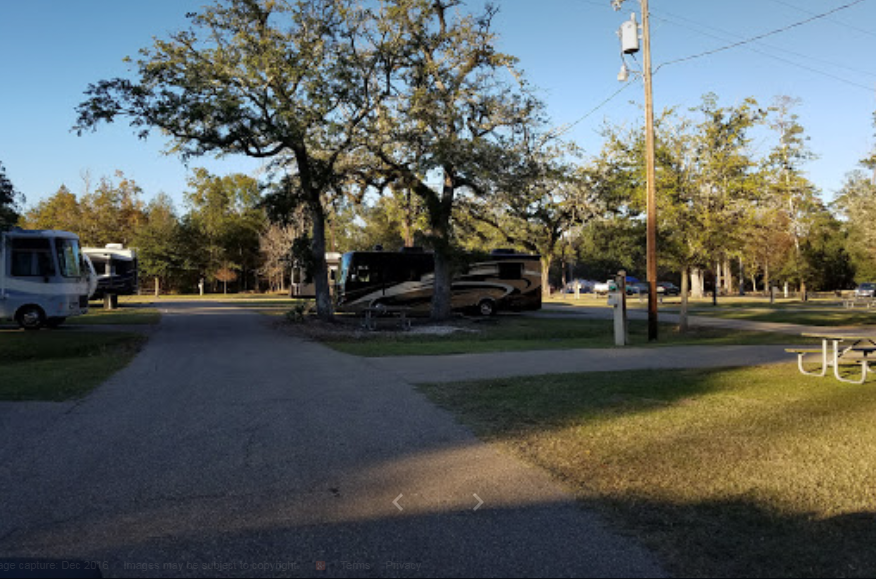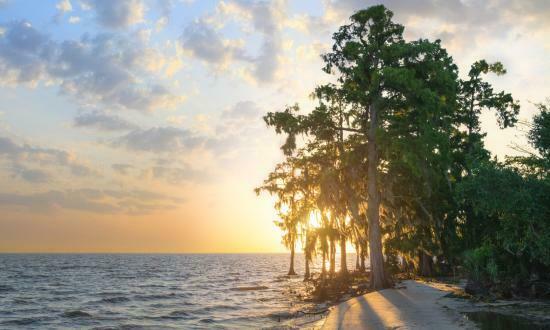Fontainebleau State Park
Overview
The crumbling brick ruins of a sugar mill built in 1829 by Bernard de Marigny de Mandeville, founder of the nearby town of Mandeville, suggest an interesting history for this site, and indeed there is. The wealthy Marigny developed this area across Lake Pontchartrain from New Orleans as a sugar plantation until 1852. The plantation income helped support his lavish lifestyle. He named his large land holding Fontainebleau after the beautiful forest near Paris, a favorite recreation area of the French kings.
The 2,800-acre park is located on the shore of Lake Pontchartrain. On a clear day, visitors can see the lake dotted with multi-colored sailboats of all sizes and types. The sandy beach also is a delight for sunbathers. An old railroad track that runs through the park has been converted into the Tammany Trace as a part of the Rails to Trails program. It is a wonderful route for cycling, hiking and in-line skating. After a full day of activities, overnight guests can enjoy the rustic charm of the campground or the scenic setting of the lakefront cabins.
The park's nature trail is a favorite of nature lovers. Interpretive signs along the trail will help you identify many of the common trees and shrubs. Always be on the lookout for birds and other animals, as over 400 different species live in and around Fontainebleau. Bordered on three sides by water – Lake Pontchartrain, Bayou Cane and Bayou Castine – and characterized by a convergence of diverse ecosystems, it has a multitude of habitats for birds.
Nearby Campgrounds
Nearby Locations
- Abita Springs RV Parks
- Amite RV Parks
- Bogalusa RV Parks
- Boutte RV Parks
- Braithwaite RV Parks
- Carriere RV Parks
- Covington RV Parks
- Folsom RV Parks
- Franklinton RV Parks
- Hammond RV Parks
- Independence RV Parks
- Kenner RV Parks
- Kiln RV Parks
- Laplace RV Parks
- Loranger RV Parks
- Madisonville RV Parks
- Marrero RV Parks
- Maurepas RV Parks
- New Orleans RV Parks
- Pearlington RV Parks
- Picayune RV Parks
- Ponchatoula RV Parks
- River Ridge RV Parks







